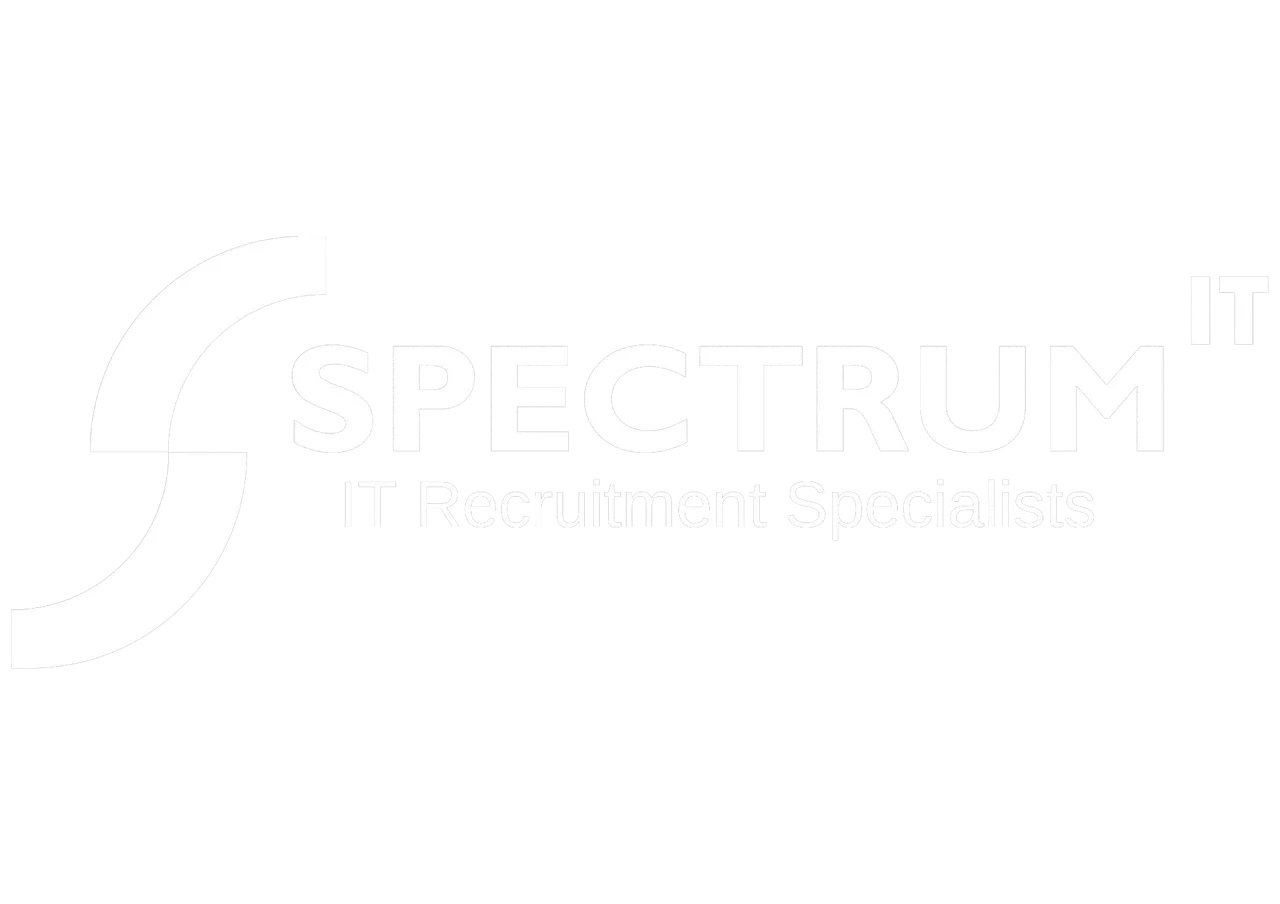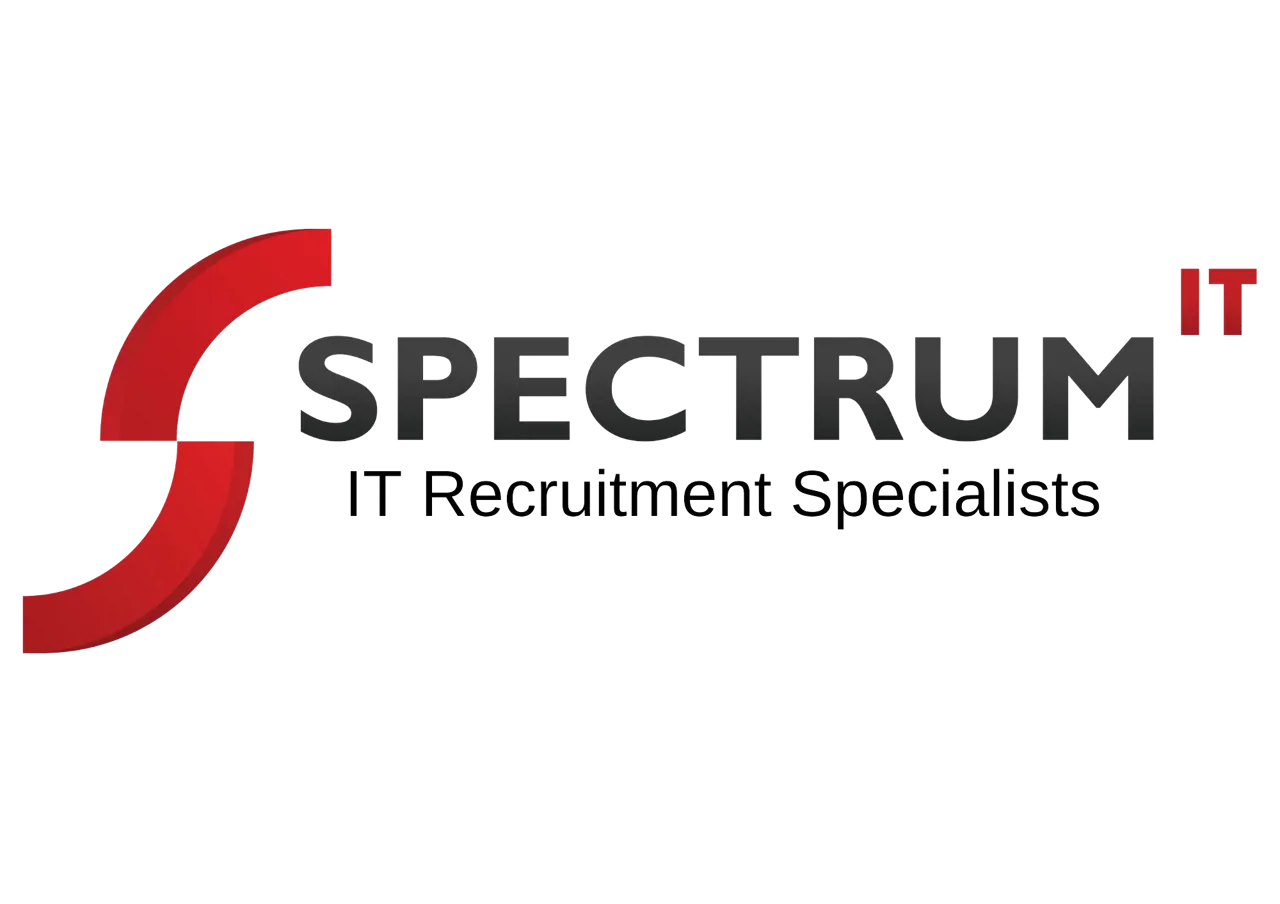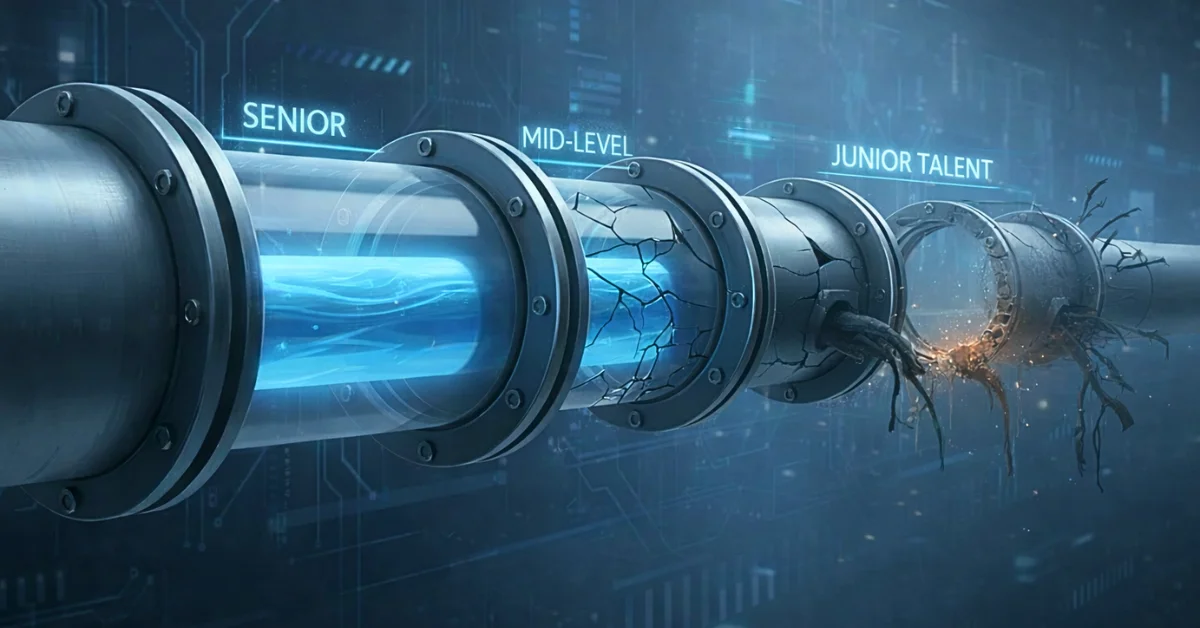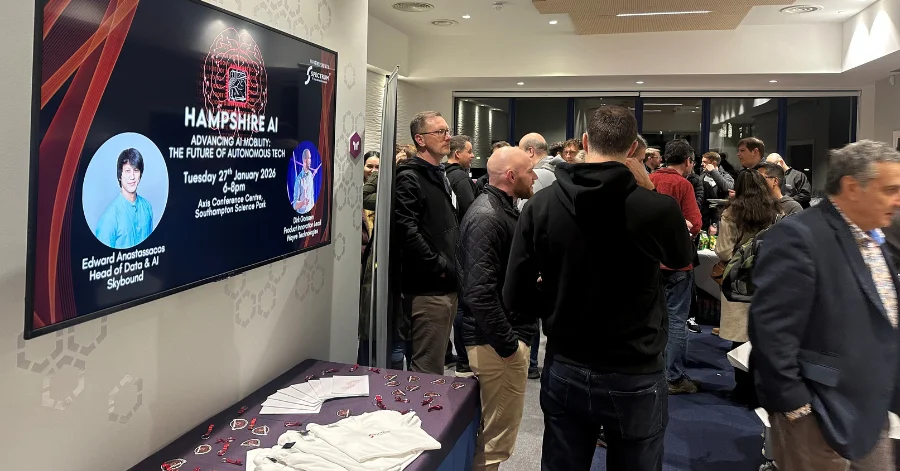
Women in Tech Hampshire - Women Thriving in Non-Technical Tech Roles
27 May, 20259 minutes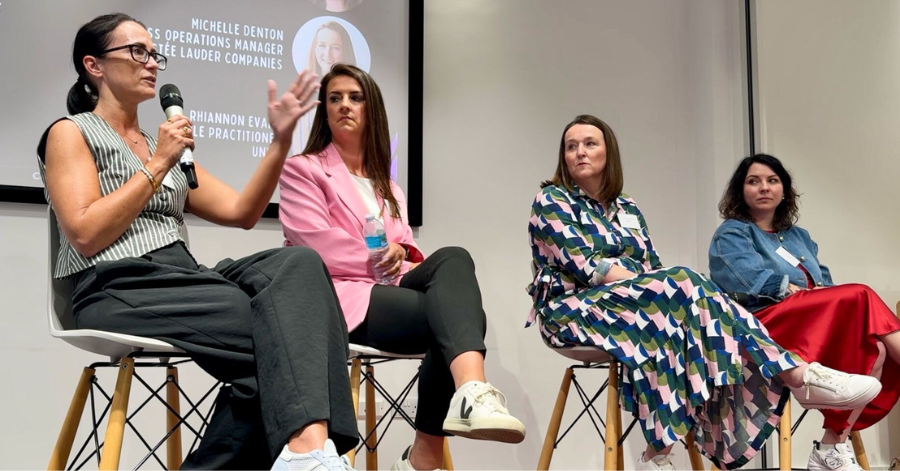
Women in non-technical roles in the tech industry
The most recent Women in Tech Hampshire (WiTH) meet-up definitely struck a chord, judging by the incredible feedback we’ve since received. We welcomed around 70 attendees, including plenty of new faces, for a discussion on the importance of non-technical roles in the tech industry.
Our hope is to dispel stereotypes around the tech industry being solely reserved for coders and programmers. Some of the most important roles rely on other skills and make a big contribution to the tech industry, shaping its future and driving innovation forward. We want to inspire women, especially younger women, to consider that there is a whole other side to the tech industry that’s just as valuable, even for those who don’t have coding or technical skills.
We were pleased to welcome a fantastic line-up of women working in the tech industry to share their experience and advice. Jemma Robinson is COO of Person Centred Software, innovative care-management software that helps to drive outstanding care and improve the lives of those involved in social care. Maria (Masha) Gaganova, Digital Transformation Consultant, uses her extensive strategy and project management knowledge from over 14 years at biotechnology research company, Roche, to transform organisations. Michelle Denton is Business Operations Manager at The Estée Lauder Companies Inc, with more than 13 years’ experience at the company. Completing the line-up was Rhiannon Evans, Agile Practitioner at Unily, an innovative digital workplace platform. The event was hosted by Spectrum IT’s own Lauren James, Operations and Engagement Manager, and co-founder of Women in Tech Hampshire.
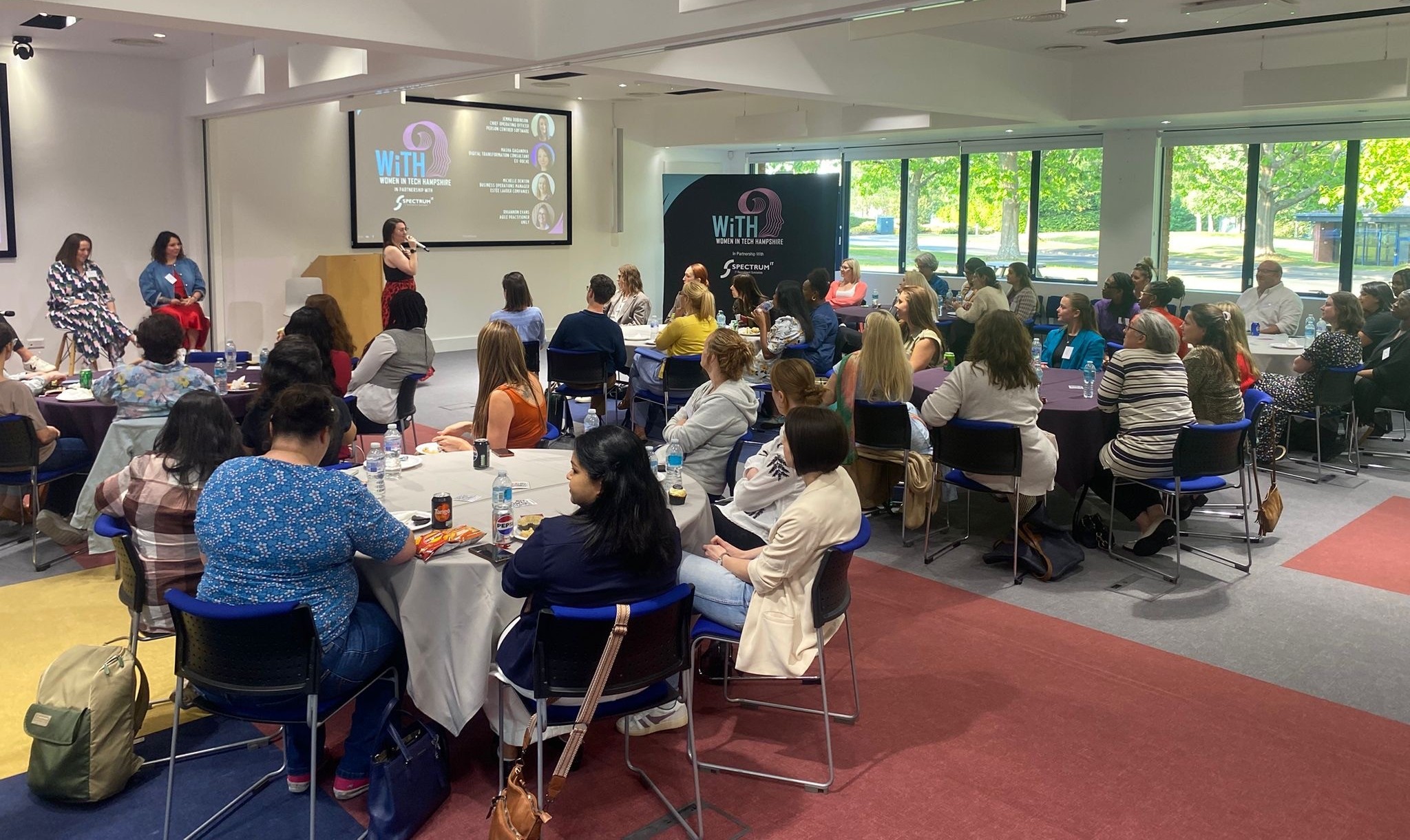
Getting into the tech industry
There’s a place for all skills within the tech industry, which was highlighted by the amazing women in our panel. These are the people who innovate, who make tech happen, who drive it in the right direction. Most of our speakers came into tech by chance through natural career progression or happy accident.
Masha has been working in health tech since 2018, after getting involved to help patients due to issues around the control and cost of medicine in Russia. Jemma says she “accidentally fell into IT”, starting off doing admin in a care home while doing her Masters. She fell in love with social care but identified problems around the vast amount of paperwork and wanted to be involved in tech for the care industry to enable a paper-free system, freeing up time for carers to focus on their clients. Rhiannon was a paralegal for 12 years and ended up in an IT project management role, when she thought she was going into an admin role. She stayed through pure determination, even when those around her said she was making a mistake with the career change. Finally, Michelle started out doing project delivery for various companies, and now works for a luxury beauty retailer, focusing on website retail, bridging the gap between business operations and technology.
All these women have worked hard and contributed hugely to the tech industry. However, there was a lot of discussion from speakers and attendees alike around the language used as women in tech. So many women say they “fell” into the tech industry, when actually women in these key roles have vital skills that contribute to and help maintain tech teams. Jemma used to describe herself as being “lucky” to be where she is, but she now recognises how hard she’s worked to achieve everything she has and reminded us all to be kinder to ourselves and be proud of our achievements. In part, these perceptions and bias of what it means to work in the tech industry have come from media portrayals and films. When asked, 90% of the people in the room (both male and female) said they had faced imposter syndrome. Rhiannon shared with us that she has named her internal imposter ‘Polly’, as a way of overcoming her own issues – many members of the audience liked this idea, as it gives a more tangible way to battle against imposter syndrome.
All the speakers were keen to impress that you don’t need to be a coder to make waves in the tech industry. When asked about the most valuable non-technical skills, they identified many, including effective communication, passion, the ability to see things from different perspectives, understanding people and teams, empathy and knowing when to speak up. These are important skills that can’t always be taught, so someone with these skills who’s interested in entering the tech industry should definitely consider making the jump. Transferrable skills are incredibly important, and a lack of technical know-how shouldn’t put anyone off applying. Michelle said she’d hired someone who originally interviewed for a role, but their technical skills weren’t quite right. However, she could see the necessary skills could be learnt and they would be a key asset to the team regardless.
All the panellists agree that networking is a great way to find suitable roles, as well as looking internally within current companies and asking for feedback from peers to find out how skills and experience could be applied within the tech space. Masha also encourages women to have mentors in the tech industry; people you can bounce ideas off.
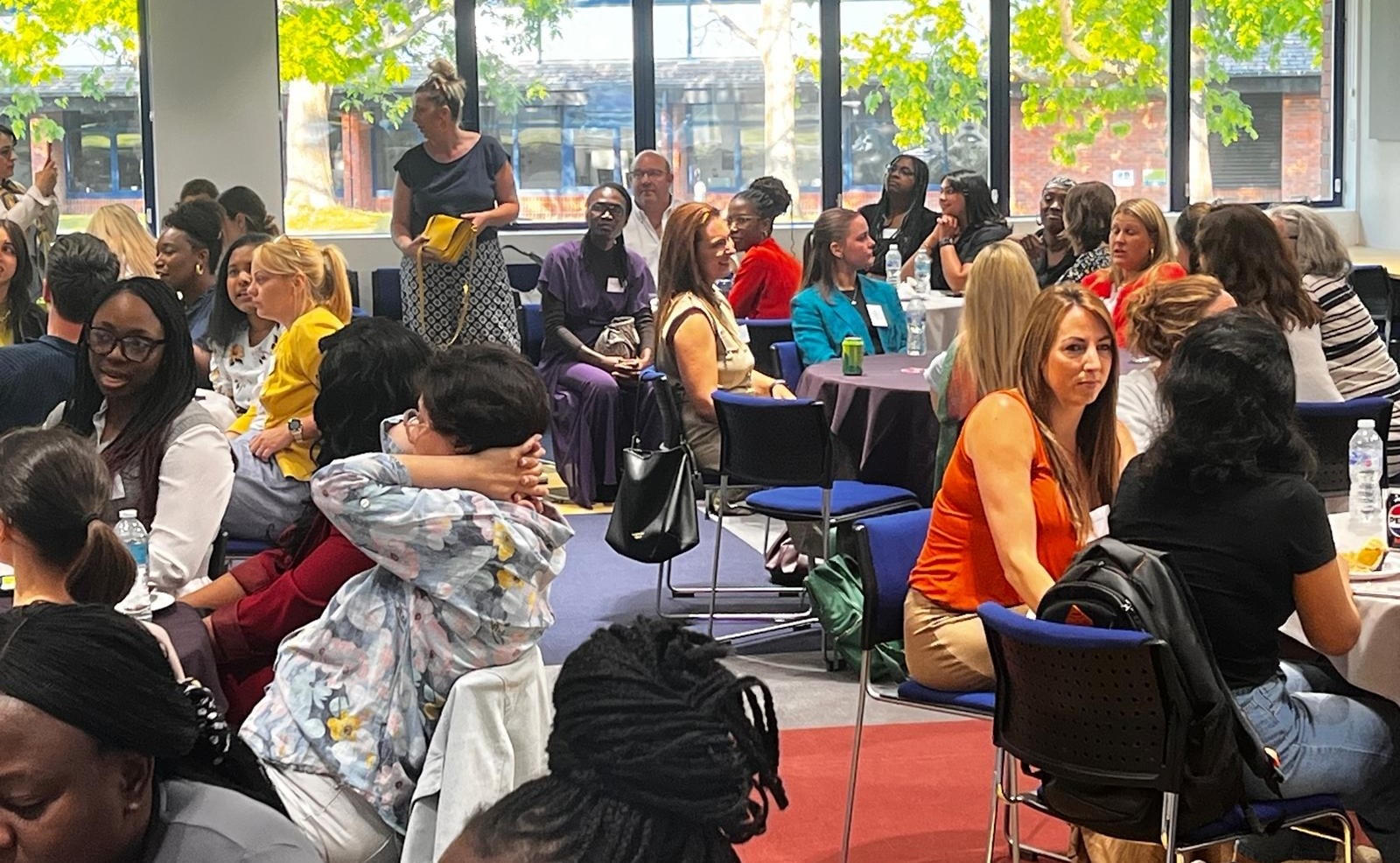
Working in tech teams
There can be a learning curve when it comes to integrating with tech teams, especially those that are established. Rhiannon explained how she had to learn all the different acronyms when she started working with technical teams. The other speakers agreed. “Acronyms can be a nightmare!” said Michelle. “[There are] general terms, as well as internal business-related ones.” It can be scary to admit when you don’t know something, especially for women, explained Lauren, as it can feel like we’ve had to fight to get our role. But, as Jemma says, it’s important to set an example, “even if it’s not being afraid to ask what something means and normalising this so that others will ask too”. Being keen to learn and find out the answers is what matters.
When it comes to collaboration, Rhiannon said it’s important to focus on listening to understand everyone’s voices and opinions – she suggests that remote working has helped to give quieter people a voice. Masha shared that engineering teams are not always the best communicators, so it can take some time and effort to work on changing this. For some women in non-technical roles, there’s a skill in ensuring technical aspects can be translated to users, and vice versa. Both Michelle and Rhiannon have been that middle person between C-Suite level and developer level, helping translate and understand what both sides are after.
The room was buzzing with questions for our panel. One attendee asked what keeps them motivated and continuing to learn. “It changes every day,” answered Jemma. “Mainly the focus on the impact of the changes that are being delivered within care.” For Rhiannon, she keeps on top of learning through webinars and said: “Always keep on learning”.
Another popular question was around what challenges the panellists have faced as women in the tech industry, and how they overcame them. For Michelle, the biggest challenge was working globally and having to deal with different characters and cultures, as well as having the confidence to speak up. While Masha said that she’s overcome many challenges by building relationships at all levels of a company.
The engaging conversation continued beyond the initial speakers, with attendees using the opportunity to network and make connections.
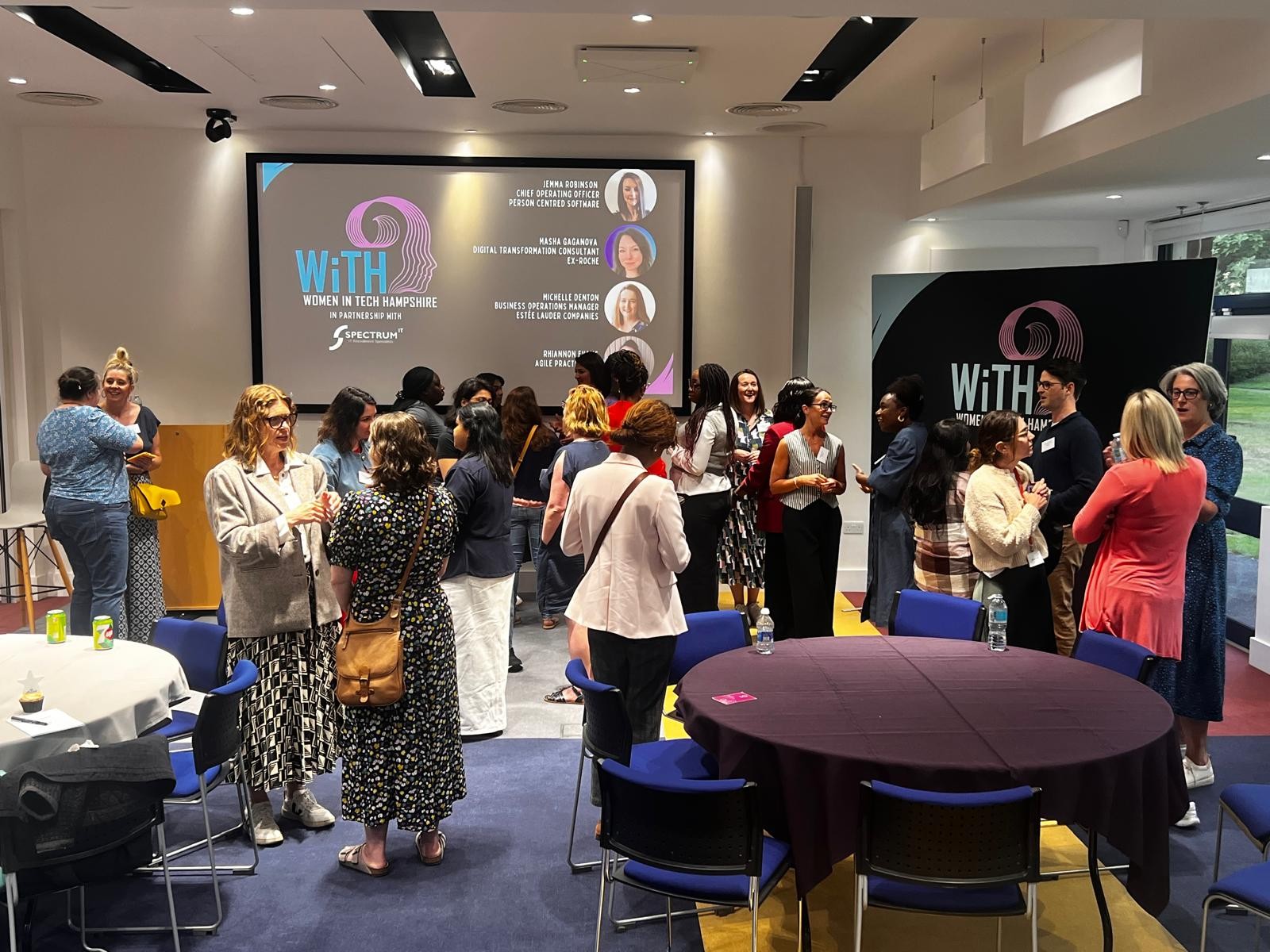
Our next event will be in July, so check out our Women in Tech Hampshire LinkedIn page to find out more and book your space.
